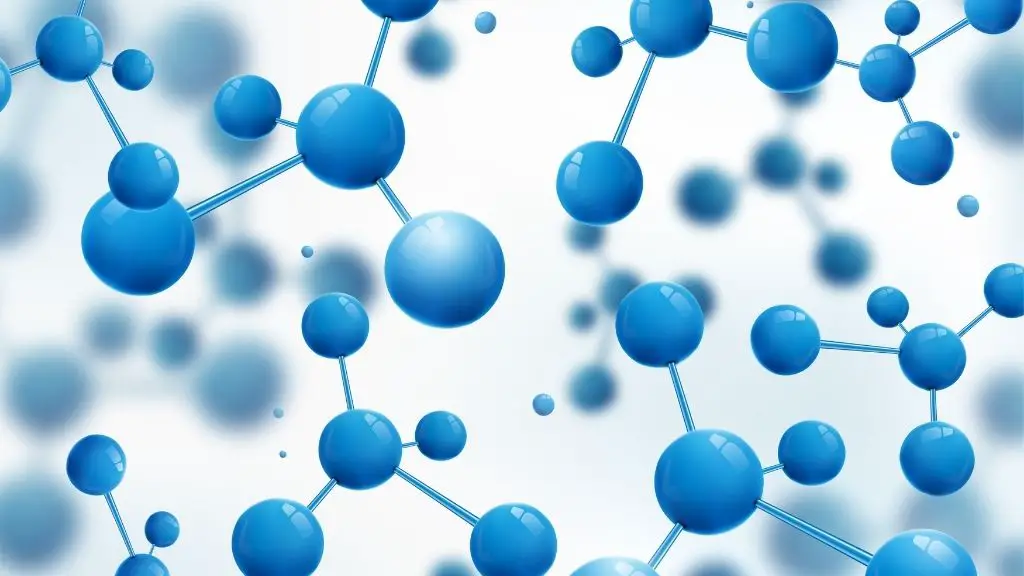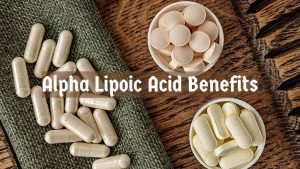Peptides for Weight loss: Benefits, Best Peptides, Side Effects

Peptides for weight loss are a popular choice for weight loss and a hot topic in dieting circles. Dive in to know if they actually help!
Do you want to lose weight? How about using peptides for weight loss? The world of peptides for weight loss can be a confusing one! There are a lot of different peptides out there but not all of them are good for weight loss. Read more about peptides for weight loss, their benefits, and their side effects here.
Before we look at peptides for weight loss let’s take a look at what peptide is and how it benefits you.
What Are Peptides?
Peptides are strings of amino acid residues and from a chemical structure perspective, peptides can be [1, 2] :
- Small peptides
- Medium-sized peptides
- Intra- and intermolecular disulfide-containing peptides
- Homodectic cyclic peptides
- Large peptides
- Peptides containing radionucleotides etc.
| Did you know? |
| Over 13000 molecules of natural peptides have been found to date. It is estimated that the number of artificial peptide diversity could be up to 1 *10 power 13 [1]. |
Any alpha-amino acid polymer composed of 40 or fewer amino acids is considered a peptide by the FDA [3].
What Are Peptides Therapy?
Peptides are considered a breakthrough in medicine due to their rejuvenating actions for both physical and mental functions.
Peptide therapy is the targeted use of peptides to stimulate or enhance cellular regrowth within the body as a treatment option for specific conditions like [4]
- Peptides for weight loss
- Accelerate wound healing
- Enhance cognitive function and memory
- Promote muscle building
- Improve gut health
- Improve immune function
- Stimulate hair growth
- Help in skin rejuvenation
- Improve bone and joint health
- Cancer
- Help reverse symptoms of sexual dysfunction
- Longevity
Peptides can be directly injected into the bloodstream or can also be taken orally, applied as topical lotions or creams or nasal sprays.
Benefits of Peptides for Weight Loss
So what are the benefits of peptides for weight loss? [5]
Peptides are natural. Most peptides used in therapy are crafted from plant or animal sources [6] like
- Eggs
- Milk
- Meat proteins
- Fish and shellfish
- Pulses
- Soy
- Oats
- Flax seeds
- Hemp seeds etc
- They have little/ no side effects
- Peptides are effective and selective
- They are highly potent
- They have predictable metabolism
Best Peptides for Weight Loss
A few best peptides for weight loss are
- Tesamorelin (GHRH peptide)
- Ipamorelin
- CJC-1295
- Amlexanox/TTA
- BPC-157
- MOTS-C
- AOD9604
- GHRP-6
- Tesofensine
What Do Peptides Do in Your Body?
Peptides control the levels of hormones released into your bloodstream. They give hormones a significant boost and can be used to aid weight loss, fat loss, muscle gain, can potentially give younger-looking skin, prevent breakouts and blemishes, etc.
What Are the Benefits of Using Peptides?
The benefits of using peptides are many including, but not limited to safety, limited or no side effects, great selectivity, and efficacy, high potency, and predictable metabolism.
Bioactive peptides also have other properties like [6]
- Antihypertensive
- Antioxidant
- Antimicrobial
- Antithrombic (reduces the formation of blood clots) and
- Immunomodulatory functions
What Are the Side Effects of Using Peptides?
In most cases, peptides are safe and not likely to cause any side effects.
However, it might rarely cause side effects like skin sensitivity, rashes, and itching when applied topically
It is always advisable to speak with your doctor before using peptide supplements or topical applications containing peptides.
Pregnant and lactating women, individuals on medications or with a medical condition must not use peptides until they speak to their doctor.
What Are the Difference Between Peptide and Protein
While both peptides and proteins are made of amino acids, peptides are short chains of amino acids and proteins are long molecules made of multiple peptide subunits.
Peptides are made of 2 to 40 or 50 amino acids, while proteins have more than 50 amino acids.
Peptides don’t have a particular structure, but proteins have complex structures like primary, secondary, tertiary, and even quaternary structures.
What Are the 6 Best Peptides for Fat Loss?
1. Glucagon-like peptide-1 (GLP-1)
GLP-1s are peptides secreted from the cells in the small intestine and large intestine and also from the neurons in the caudal brain stem.
Long-acting GLP-1 analogs are thought to help in reducing body weight and reducing reward-motivated behavior and intake of high-fat diets by directly acting on the GLP-1 receptors in the brain and reducing food intake [7].
2. Tesamorelin (GHRH peptide)
Secretion of growth hormone greatly reduces as we age. Production of growth hormone is said to decline by 14% every decade and might even decrease by 50% every 7 years in adult men [8].
Tesamorelin, a synthetic 44- amino acid polypeptide analog of growth hormone-releasing hormone (GHRH) can selectively reduce visceral fat and triglyceride levels in older people by restoring normal growth hormone pulsatility and amplitude [8,9,10].
A double-blind placebo-controlled study also showed that Tesamorelin not only reduces visceral fat but also maintains the reduction in visceral fat for up to 52 weeks [11].
3. MOTS-C
MOTS-C is a novel mitochondrial-derived peptide that can improve insulin sensitivity, promote weight loss, increases fatty acid utilization, and reduces fatty liver [12,13,14].
This multipurpose peptide is best for those seeking optimization. However, further studies are needed to confirm the safety, efficacy, and dosage of MOT-C required to avail these benefits.
4. AOD9604
AOD9604 is a lipolytic peptide fragment synthesized from the C-terminus of the human growth hormone.
Most animal studies and 1 human study demonstrated that AOD9604 can reduce body weight and body fat at the molecular level by increasing lipolytic activity [15,16,17].
5. Tesofensine
Tesofensine is a triple monoamine intake inhibitor that inhibits norepinephrine, serotonin, and dopamine reuptake function.
It promotes sustained weight loss, decreases body fat and waist circumference, and other obesity-related hormonal characteristics most likely due to increased energy expenditure and appetite suppression [18,19,20, 21].
Tesofensine is currently in its phase 3 trials.
6. Amlexanox
Amlexanox is an anti-inflammatory compound and an IKKε/TBK1 inhibitor that promotes weight loss and fat loss [22,23,24].
It has now progressed into clinical testing for the prevention and treatment of obesity and type-2 diabetes [22].
Few fat loss peptides which don’t require a needle are:
- AOD9604
- Glycyrrhetinic Acid
- Tesofensine
- Amlexanox
- 5-Amino-1MQ
How Peptides Work for Fat-Burning and Recovery
A decrease in growth hormone causes many deficiency symptoms like a decrease in lean body mass, increased abdominal fat, decreased cardiac capacity, muscle strength, exercise performance, and many psychological problems [25].
Most peptides for weight loss or fat loss work by mimicking growth hormone, stimulating the production of growth hormone, or increasing metabolism. More research is needed to study the exact mechanism of action of different types of peptides.
Dose Ranges for Fat Loss Peptides
The dose of peptide supplements- either topical or injected vary depending on the type of peptide and the brand.
Thus it is always recommended to first consult a doctor and select the best peptide for weight loss or fat loss for you. Always follow medical advice/ package instructions while taking peptide supplements or topical peptide applications.
Collagen Peptides for Aging and Beauty
Collagen is the most abundant protein in the body responsible for maintaining proper skin, hair, nails, bones, and connective tissue.
As we age, the production of collagen decreases stimulating aging, which shows in skin and joints [26].
Collagen peptide supplementation gives the body enough raw materials to increase the production of collagen and can help
- Decrease inflammation
- Improve the skin barrier
- Reduce fine lines and wrinkles
- Might help clear breakouts
- Give more firm and elastic skin
Peptides have numerous benefits for weight loss, healthy skin, etc. But nothing beats proper nutrition and physical activity like exercise or daily yoga when it comes to staying in tip-top form.
Wrapping up
Taking peptides for weight loss is a great way to lose weight. They are supplements that can be taken in order to shed excess fat through the natural process of lipolysis (breakdown of fat). These supplements can help you lose weight by mimicking the effects of HGH, the human growth hormone, and accelerating fat loss.
All being said, there is still limited evidence on how peptides work and to what extent they are effective. So, much more research is necessary to confirm the safety and efficacy of peptides.
Until then, if you are considering taking peptides, you must definitely consult your doctor first to understand the potential benefits and risks of using peptides.
What next?
There are a number of other ways to lose weight. Check out
FAQs
Q: How Do Peptides Work?
A: Peptides work by increasing the level of targeted hormones released in your benefits and can be used to aid with weight loss, fat loss, muscle gain, etc
Q: Why Use Peptides for Fat Loss?
A: Peptides for fat loss are mostly natural, have no/ minimal side effects, and are mostly considered safe, effective, and potent.
Q: How long will it take to see results?
A: It is important to note that peptide therapy for weight loss, like any other therapy for weight loss, is not an instant cure-it-all formula. It is just a supportive therapy to fast-track weight loss.
So, it might take a few weeks to a few months to notice the desired effects depending on the individual.
References
- Yuan, Yunsheng. “Mechanisms Inspired Targeting Peptides.” Advances in experimental medicine and biology vol. 1248 (2020): 531-546
- de la Torre, Beatriz G, and Fernando Albericio. “Peptide Therapeutics 2.0.” Molecules (Basel, Switzerland) vol. 25,10 2293. (2020)
- “ANDAs for Certain Highly Purified Synthetic Peptide Drug Products That Refer to Listed Drugs of rDNA Origin – Guidance for Industry” Food and Drug Administration (2021)
- Hamley, I W. “Small Bioactive Peptides for Biomaterials Design and Therapeutics.” Chemical reviews vol. 117,24 (2017): 14015-14041.
- Erak, Miloš et al. “Peptide chemistry toolbox – Transforming natural peptides into peptide therapeutics.” Bioorganic & medicinal chemistry vol. 26,10 (2018): 2759-2765.
- Chakrabarti, Subhadeep et al. “Food-Derived Bioactive Peptides in Human Health: Challenges and Opportunities.” Nutrients vol. 10,11 (2018):1738
- Kanoski, Scott E et al. “GLP-1 and weight loss: unraveling the diverse neural circuitry.” American journal of physiology. Regulatory, integrative and comparative physiology vol. 310,10 (2016): R885-95.
- Sattler, Fred R. “Growth hormone in the aging male.” Best practice & research. Clinical endocrinology & metabolism vol. 27,4 (2013): 541-55.
- Stanley, Takara L et al. “Reduction in visceral adiposity is associated with an improved metabolic profile in HIV-infected patients receiving tesamorelin.” Clinical infectious diseases: an official publication of the Infectious Diseases Society of America vol. 54,11 (2012): 1642-51.
- “Tesamorelin” LiverTox: Clinical and Research Information on Drug-Induced Liver Injury. National Institute of Diabetes and Digestive and Kidney Diseases, 2012.
- Falutz, Julian et al. “Effects of tesamorelin (TH9507), a growth hormone-releasing factor analog, in human immunodeficiency virus-infected patients with excess abdominal fat: a pooled analysis of two multicenter, double-blind placebo-controlled phase 3 trials with safety extension data.” The Journal of clinical endocrinology and metabolism vol. 95,9 (2010): 4291-304.
- Lee, Changhan et al. “MOTS-c: A novel mitochondrial-derived peptide regulating muscle and fat metabolism.” Free radical biology & medicine vol. 100 (2016): 182-187
- Lee, Changhan et al. “The mitochondrial-derived peptide MOTS-c promotes metabolic homeostasis and reduces obesity and insulin resistance.” Cell metabolism vol. 21,3 (2015): 443-54.
- Kim, Su-Jeong et al. “The mitochondrial-derived peptide MOTS-c is a regulator of plasma metabolites and enhances insulin sensitivity.” Physiological reports vol. 7,13 (2019): e14171.
- Khan, Areej et al. “Current updates in the medical management of obesity.” Recent patents on endocrine, metabolic & immune drug discovery vol. 6,2 (2012): 117-28.
- Heffernan, M et al. “The effects of human GH and its lipolytic fragment (AOD9604) on lipid metabolism following chronic treatment in obese mice and beta(3)-AR knock-out mice.” Endocrinology vol. 142,12 (2001): 5182-9.
- Ng, F M et al. “Metabolic studies of a synthetic lipolytic domain (AOD9604) of human growth hormone.” Hormone research vol. 53,6 (2000): 274-8.
- Hansen, Henrik H et al. “The novel triple monoamine reuptake inhibitor tesofensine induces sustained weight loss and improves glycemic control in the diet-induced obese rat: comparison to sibutramine and rimonabant.” European journal of pharmacology vol. 636,1-3 (2010): 88-95.
- Bello, Nicholas T, and Matthew R Zahner. “Tesofensine, a monoamine reuptake inhibitor for the treatment of obesity.” Current opinion in investigational drugs (London, England : 2000) vol. 10,10 (2009): 1105-16.
- Doggrell, Sheila A. “Tesofensine–a novel potent weight loss medicine. Evaluation of: Astrup A, Breum L, Jensen TJ, Kroustrup JP, Larsen TM. Effect of tesofensine on bodyweight loss, body composition, and quality of life in obese patients: a randomised, double-blind, placebo-controlled trial. Lancet 2008;372:1906-13.” Expert opinion on investigational drugs vol. 18,7 (2009): 1043-6.
- Hansen, Henrik H et al. “Tesofensine induces appetite suppression and weight loss with reversal of low forebrain dopamine levels in the diet-induced obese rat.” Pharmacology, biochemistry, and behavior vol. 110 (2013): 265-71.
- Cruz, Victoria H et al. “Loss of Tbk1 kinase activity protects mice from diet-induced metabolic dysfunction.” Molecular metabolism vol. 16 (2018): 139-149.
- Reilly, Shannon M et al. “FGF21 is required for the metabolic benefits of IKKε/TBK1 inhibition.” The Journal of clinical investigation vol. 131,10 (2021): e145546.
- Dosanjh, Amrita, and Cindy Y Won. “Amlexanox: A Novel Therapeutic for Atopic, Metabolic, and Inflammatory Disease.” The Yale journal of biology and medicine vol. 93,5 (2020) 759-763.
- Garcia, Jose M., George R. Merriam, and Atil Y. Kargi. “Growth hormone in aging.” Endotext [Internet] (2019)
- Varani, James et al. “Decreased collagen production in chronologically aged skin: roles of age-dependent alteration in fibroblast function and defective mechanical stimulation.” The American journal of pathology vol. 168,6 (2006): 1861-8.







